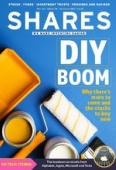Archived article
Please note that tax, investment, pension and ISA rules can change and the information and any views contained in this article may now be inaccurate.
Reckitt and Unilever struggle with accelerating cost inflation

A 27 July first half results update from consumer goods giant Reckitt Benckiser (RKT) and the 9% slide in the share price on the day will have served as a rude awakening for investors who thought big brands could raise prices at the stroke of a wand.
Despite a ‘structural rebasing’ in demand for its hygiene brands such as Dettol and Lysol due to the pandemic, Reckitt says it is facing price rises of between 8% and 9% in raw materials so far this year.
‘Cost inflation accelerated in the second quarter and it will take time to offset this headwind with productivity and pricing actions being implemented in the back half of the year and early next year’, according to chief executive Laxman Narasimhan.
As a result of these cost pressures, operating margins are now likely to be between 0.4% and 0.9% below 2020’s level, offsetting the benefit of Narasimhan’s decision to ditch the Chinese infant formula business and the perennially underperforming Scholl footcare unit.
Reckitt isn’t alone in struggling with rampant cost inflation, however. In a presentation to US investors, rival Proctor & Gamble – which competes head-on with Reckitt across a range of household products – reported price increases for the year to April of between 100% and 200% in resins, 70% to 200% in ethylene and 75% to 125% in propylene.
The US firm also cited $200 million of higher freight costs and supply constraints as contributing to a $600 million negative swing in its profits for the period to April.
Anglo-Dutch firm Unilever (ULVR), which is focused more on food and personal care products than household goods, also flagged rising cost inflation in its half-year update and trimmed its guidance for operating profits from a small rise to flat on last year.
‘Cost volatility and the timing of landing price actions create a higher than normal range of likely year end margin outcomes. We are managing this dynamically and expect to maintain underlying operating margin for 2021 around flat’, said chief executive Alan Jope.
Where Unilever has an advantage is in food and personal care, where brands like Ben & Jerry’s and Magnum are seen as having a ‘touch of luxury’, while Dove and Lux have become highly-trusted, consumer-friendly names, and shoppers are prepared to spend that little bit extra to treat themselves or make themselves feel good.
The question for all consumer goods firms though is can they rise prices without harming volumes. Historically, the answer has been no, with volumes tailing off around six months after they have pushed through price hikes. Only time will tell whether this time they can make them stick.
Important information:
These articles are provided by Shares magazine which is published by AJ Bell Media, a part of AJ Bell. Shares is not written by AJ Bell.
Shares is provided for your general information and use and is not a personal recommendation to invest. It is not intended to be relied upon by you in making or not making any investment decisions. The investments referred to in these articles will not be suitable for all investors. If in doubt please seek appropriate independent financial advice.
Investors acting on the information in these articles do so at their own risk and AJ Bell Media and its staff do not accept liability for losses suffered by investors as a result of their investment decisions.
Issue contents
Editor's View
Feature
Great Ideas
- Why now is a great time to buy Hotel Chocolat
- Big buying opportunity at Avon Protection
- Big upgrade for FTSE 100 group Croda as new strategy pays off
- SDI continues to reward loyal retail investor fans
- Morgan Sindall surges on latest earnings upgrade
- Coca-Cola posts strong growth and continues to take market share
 magazine
magazine








